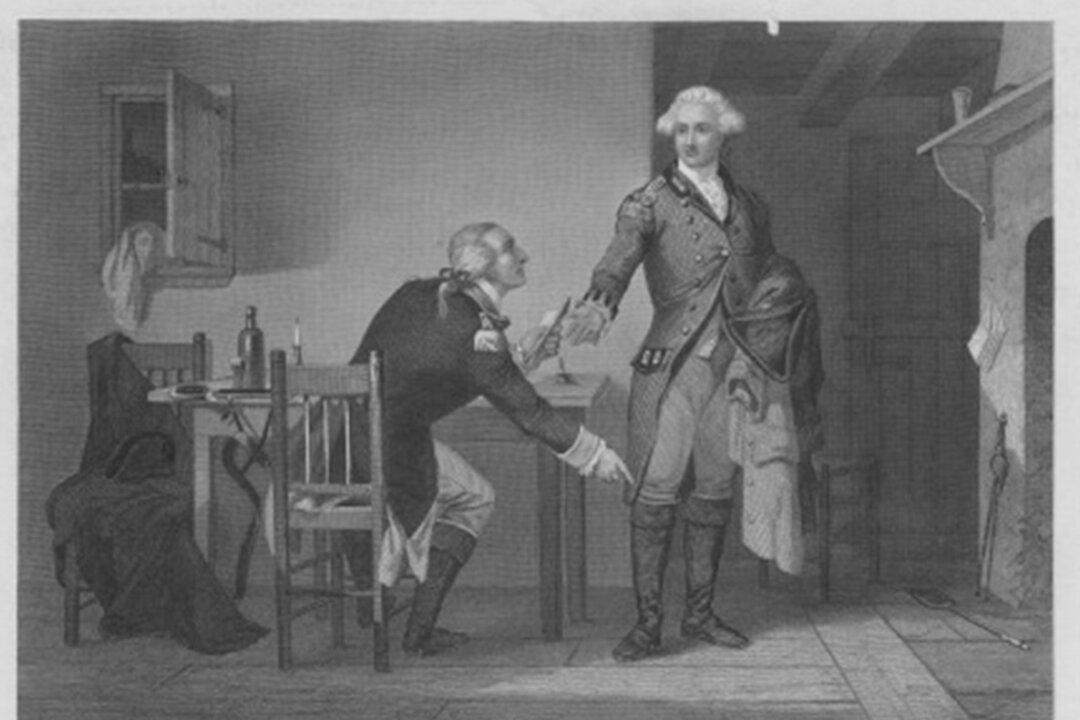“Every way of a man is right in his own eyes.” This biblical proverb is not an affirmation of man’s ability to choose; rather, it is a warning against believing in one’s infallibility. While British historian Stephen Brumwell researched the life of Benedict Arnold, the famous American traitor, he was taken aback at how often Arnold demonstrated this sense of infallibility.
“He kind of always considered himself to be right,” Brumwell said during an interview on “The Sons of History” podcast. “There’s a phrase that comes up again and again in his correspondences, which is ‘conscious of the rectitude of my intentions.’ Basically he’s saying, ‘I consider myself to be justified in whatever I do.’ I don’t think Arnold was the kind who was deliberately setting out to portray himself in a darker way. I think he was someone who genuinely did what he thought was right.”






